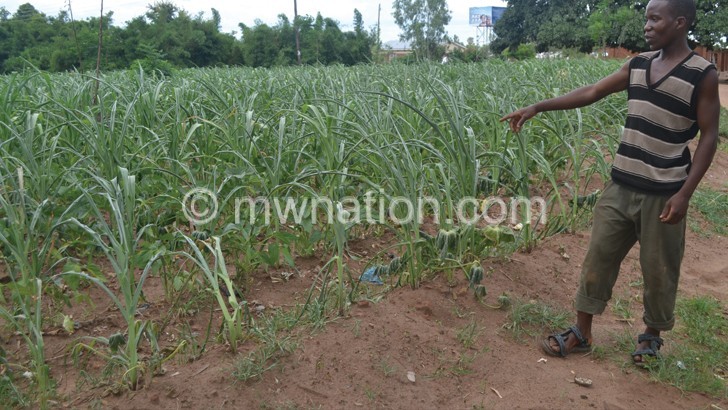CisaNet speaks on dry spell, army worms attack
Civil Society Agriculture Network (CisaNet) has urged government to prioritise the National Resilience Plan (NRP) in light of frequent weather shocks such as dry spells and floods in the country.
The NRP is an agenda that seeks to address causes of climate change, minimise effects of climate change on food security and strengthen the resilience of weather shocks at household and national levels.

CisaNet executive director Pamela Kuwali, in an email response to a questionnaire from The Nation on the impact of the combined effects of fall armyworms and dry spells on crop production this year, said government should pay attention to the resilience plan, resources allocated and actions taken to ensure food security for all Malawians even in times of shocks.
“Government and other stakeholders must recognise that this year is extraordinary and that if the rain situation does not improve, humanitarian needs are likely to be huge and complex with a great number of households in need of food assistance not long after the harvest period,” said Kuwali.
She said as an organisation, CisaNet is concerned with the likely impact of the fall army worm outbreak and dry spells on the levels of production this year.
She said: “It is, therefore, critical to start planning and mobilising resources for the humanitarian response now. Government must also ensure that the grain reserves are well stocked.
“Besides, government and stakeholders must also ensure that the existing irrigation infrastructure in various parts of the country is optimally utilised; and where possible scale up in order to grow additional food crops to supplement the harvest.”
So far, dry spells have affected 12 percent of 1.7 million hectares (ha) of maize whereas the fall armyworms have affected 270 000 ha, according to the Ministry of Agriculture, Irrigation and Water Development.
The effects of the two may in the long run have a direct bearing on the country’s growth prospects as Malawi is an agro-based economy—largely depending on agriculture which rakes in over 80 percent of the country’s agricultural export earnings.
Ministry of Agriculture, Irrigation and Water Development spokesperson Osborne Tsoka, while describing the 12 percent affected hectares as minimal, told The Nation last week that the ministry is currently assessing the situation and that a report would be released by this week.
In the 2016/17 farming season, maize production jumped by about 35.9 percent to 3.2 million metric tonnes (MT) compared to 2.3 million MT in 2015/16 season. However, the 2016/17 season was also affected by fall armyworms and a chaotic Farm Input Subsidy Programme (Fisp). n





